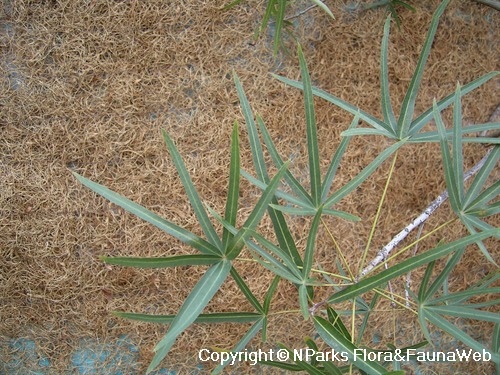
Back
Brachychiton acerifolius (A. Cunn. ex G. Don) Macarthur
| Family Name: | Malvaceae |
| Synonyms: | Sterculia acerifolia A.Cunn. ex G.Don, |
| Common Name: | Illawarra Flame Tree, Flame Tree, Flame Kurrajong, Queensland Flame Tree, Australian Flame Tree |
Brachychiton acerifolius is also known as Illawarra Flame Tree due its spectacular flowering characteristic and scarlet red blooms. During flowering season, the tree sheds its leaves and produces abundant vibrant red flowers covering the whole crown, which resembles a tree on fire.
Name
Classifications and Characteristics
| Plant Division | Angiosperms (Flowering Seed Plants) (Dicotyledon) |
|---|---|
| Plant Growth Form | Tree (Big (>30m), Medium (16m-30m), Small (6m-15m)) |
| Lifespan (in Singapore) | Perennial |
| Mode of Nutrition | Autotrophic |
| Plant Shape | Conical |
| Maximum Height | 10 m to 35 m |
| Maximum Plant Spread / Crown Width | 6 m to 8 m |
Biogeography
| Native Distribution | Eastern Australia (Queensland to New South Wales) |
|---|---|
| Native Habitat | Terrestrial (Primary Rainforest, Monsoon Forest, Grassland / Savannah/ Scrubland) |
| Preferred Climate Zone | Tropical, Sub-Tropical / Monsoonal, Mediterranean |
Description and Ethnobotany
| Growth Form | It is a deciduous tree, usually 10 - 15 m tall in cultivation, and may reach up to 35 m in the wild. The tree crown is conical. |
|---|---|
| Foliage | Leaves smooth and glossy, variable in shape even on same plant -- from simple (unlobed) up to 9 lobes, typically 3, 5 or 7 lobes, leaves on mature trees tend to be less lobed than those on juvenile plants. |
| Flowers | Flower is scarlet-red, bell-shaped with 5 partially-fused waxy sepals. They are produced in large terminal panicles on leafless branches. Blooming may be partial and with varying intensity, but whole tree may be spectacularly covered with flowers after prolonged period of dryness. |
| Fruit | Dry woody explosive capsules, dark brown or black when mature, with many yellow corn-like seeds surrounded by interlocking irritant or stinging bristles. |
| Cultivation | Tolerates drought. Handle carefully (with gloves) to prevent bristles from sticking in skin, and avoid inhaling or getting into the eyes which may cause irritation. |
| Etymology | Genus 'Brachychiton' means short (brachy) tunic (chiton), a reference to the overlapping bristles on seeds. Species epithet 'acerifolius' describes the lobed, maple-like leaves. |
| Ethnobotanical Uses | Others: Nutritious seeds are roasted and eaten by Aborigines. Fibres from inner bark used to make fishing lines and nets. |
Landscaping Features
| Desirable Plant Features | Ornamental Flowers |
|---|---|
| Landscape Uses | Suitable for Roadsides, General, Shade Providing Tree / Palm, Focal Plant |
| Thematic Landscaping | Naturalistic Garden |
| Usage Hazard - Cons | Irritant - Hairs |
| Usage Hazard - Cons Remarks | Seeds in fruits surrounded by honeycomb of irritant bristles that stick in the skin. Handle only with gloves. Bristles can also be inhaled, and have been known to cause irritation. |
Fauna, Pollination and Dispersal
| Seed or Spore Dispersal | Abiotic (Explosive Dehiscence) |
|---|
Plant Care and Propagation
| Light Preference | Full Sun |
|---|---|
| Water Preference | Moderate Water |
| Plant Growth Rate | Moderate |
| Rootzone Tolerance | Fertile Loamy Soils, Well-Drained Soils, Drought Tolerant |
| Maintenance Requirements | Moderate |
| Propagation Method | Seed, Stem Cutting, Grafting |
| Propagation Method Remarks | Seed-grown tree takes 5 - 8 years to flower. |
| Planting Distance | 8 m |
Foliar
| Foliage Retention | Deciduous |
|---|---|
| Mature Foliage Colour(s) | Green |
| Mature Foliage Texture(s) | Smooth, Glossy / Shiny, Thick |
| Foliar Type | Simple / Unifoliate |
| Foliar Arrangement Along Stem | Alternate, Whorled |
| Foliar Shape(s) | Non-Palm Foliage (Ovate, Lanceolate) |
| Foliar Margin | Entire, Entire - Wavy / Undulate, Pinnately Lobed / Pinnatifid, Palmately Lobed |
| Foliar Apex - Tip | Acuminate |
| Foliar Base | Cordate |
| Typical Foliar Area | Mesophyll ( 45cm2 - 182.25 cm2 ) |
| Leaf Area Index (LAI) for Green Plot Ratio | 3.0 (Tree - Intermediate Canopy) |
Non - Foliar and Storage
| Trunk Type (Non Palm) | Woody |
|---|---|
| Bark Colour(s) | Grey |
| Mature Bark Texture | Fissured |
| Stem Type & Modification | Woody |
| Root Type | Underground (Tap Root, Fibrous Root) |
Floral (Angiosperm)
| Flower Colour(s) | Red |
|---|---|
| Inflorescence Type | Panicle |
| Flowering Period | Hot & Dry Period |
| Flowering Habit | Polycarpic |
Fruit, Seed and Spore
| Mature Fruit Colour(s) | Black |
|---|---|
| Fruit Classification | Simple Fruit |
| Fruit Type | Dehiscent Dry Fruit , Follicle |
Image Repository
Others
| Master ID | 1461 |
|---|---|
| Species ID | 2754 |
| Flora Disclaimer | The information in this website has been compiled from reliable sources, such as reference works on medicinal plants. It is not a substitute for medical advice or treatment and NParks does not purport to provide any medical advice. Readers should always consult his/her physician before using or consuming a plant for medicinal purposes. |


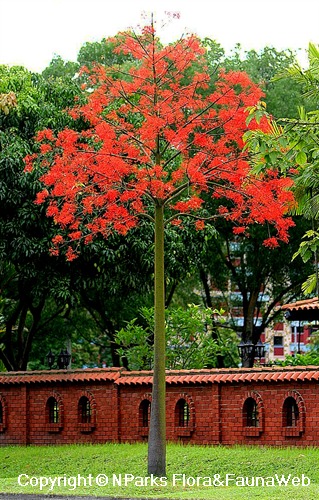



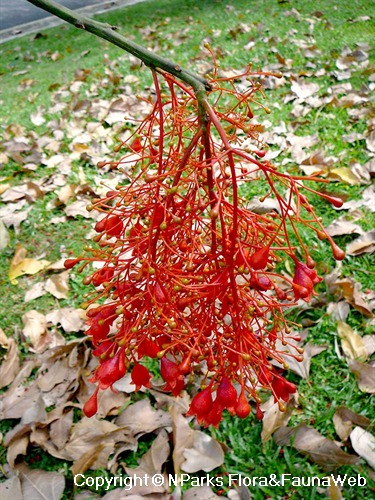
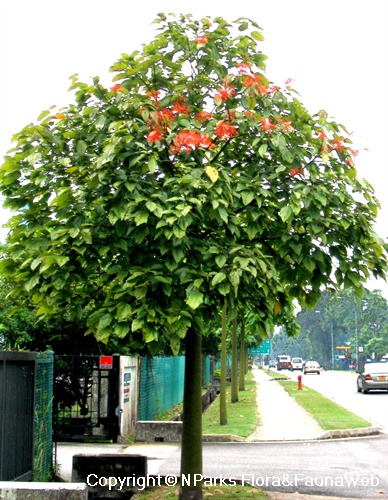


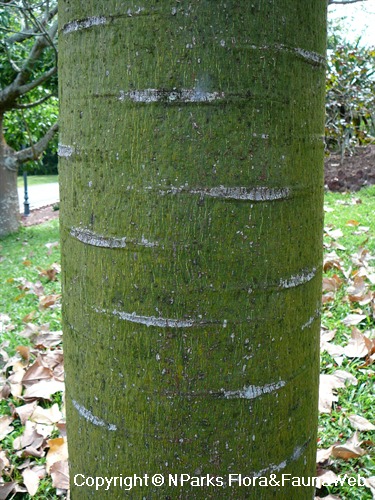
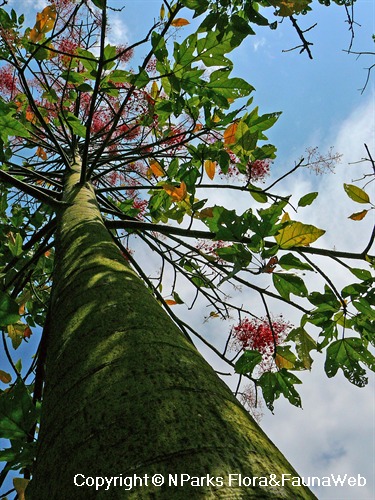

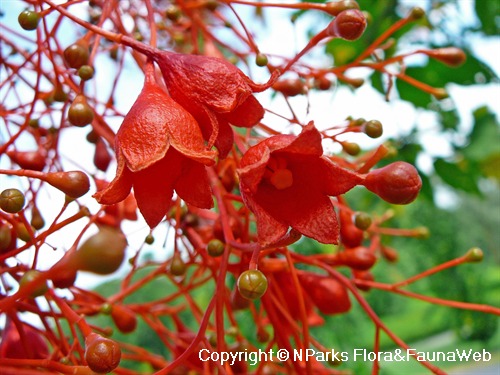
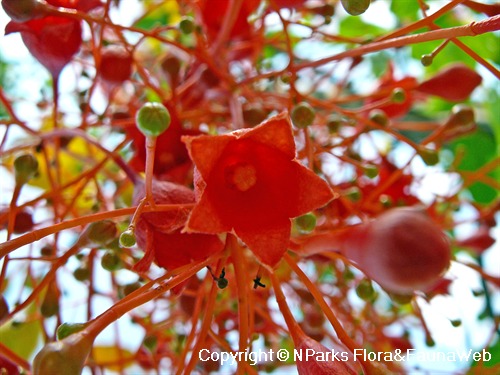

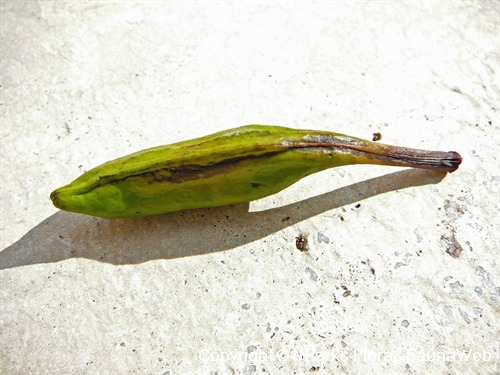
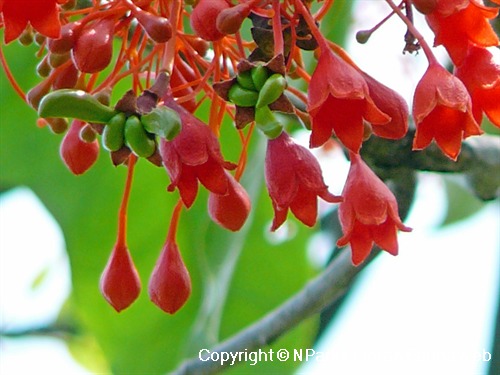
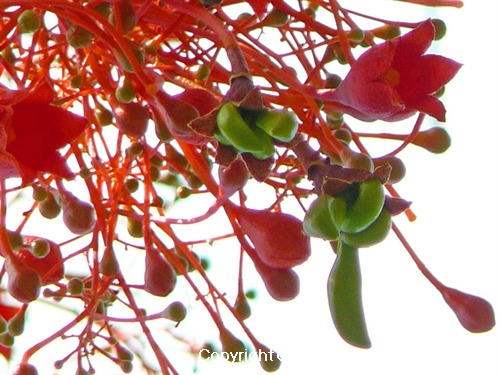

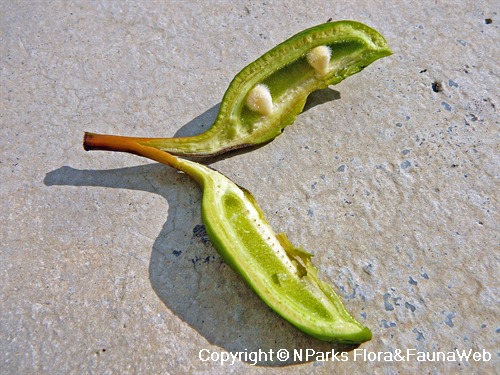
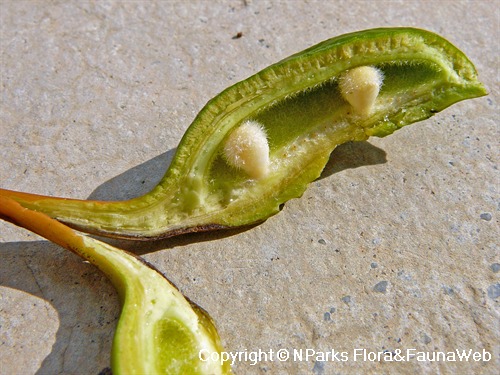
_lowres.jpg)
_lowres.jpg)
_lowres.jpg)
_lowres.jpg)
